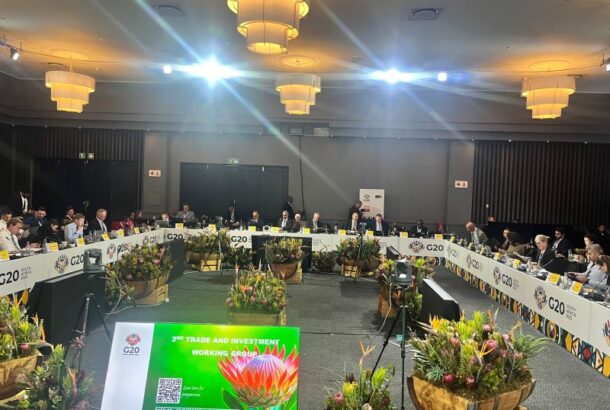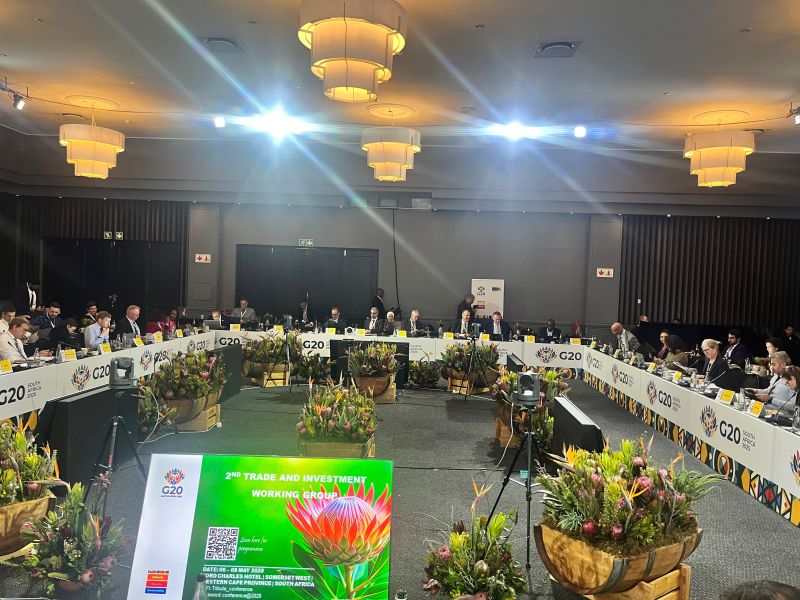The G20, brings together major economies. Its members represent around 80% of the world’s population and play a critical role in shaping and steering the global economy on key issues. G20 nations together account for more than 75% of global emissions. Their actions are therefore essential to meeting the Paris Agreement targets. The South African Presidency is integrating climate change into several of its working groups including, for the first time, specifically within the Working Group on Trade and Investment
The Presidency has identified an agreement on a “G20 Framework/Pledge on Green Industrialisation and Investment to Promote Sustainable Development” as one of the priorities for this Working Group. Through this framework, the G20 Presidency seeks to define “a grand bargain that would promote mutual benefits of the green transition in a manner that fosters predictable trade, advances value addition and industrial development at sources, and ensures shared prosperity.” It also aims to support the integration of developing countries into global green value chains.
The second meeting of the Trade and Investment Working Group was held in Somerset West, in the Western Cape, South Africa, during the first week of May.

This second meeting was an opportunity for members to engage further and begin to prepare recommendations for the Trade and Investment Ministers meeting scheduled for 10 October 2025. LeadIT, working with the African Future Policies Hub (AFPH) and World Resources Institute (WRI) provided a Joint Informal input paper “Improving Green Competitiveness for Inclusive Transformation” to the Working Group.
Key messages
- Green industrialisation presents a transformative opportunity, not only as an environmental imperative, but also as a pathway to global competitiveness and long-term prosperity.
- The African continent is uniquely positioned to lead this growth. However, green industrialisation is a complex as its meaning varies across different contexts and it encompasses multiple dimensions
- Enhanced collaboration among stakeholders, activities, and resources is crucial for enabling access to knowledge, skills, demand, finance, and value creation
- The scale and nature of financing mechanisms and investments play a crucial role
- Renewable energy and transition mineral value chains could serve as a foundation for new industrial models, but this will require market shifts, coordinated policy efforts, and global partnerships.
The South African Presidency of the G20 group will make the case for decarbonizing trade, investments, and industry in a just and equitable manner globally – a message well aligned with the vision jointly formulated by the Leadership Group for Industry Transition and its work.
The next meeting of the Trade and Investment Working Group takes place on 29 – 31 July in Muldersdrift, in the Gauteng province of South Africa.

